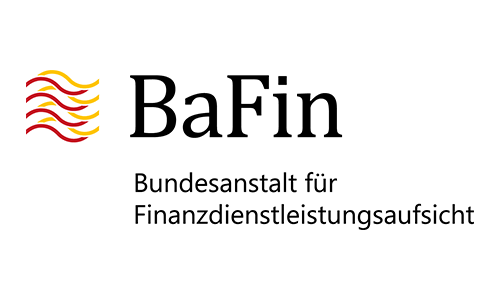Crypto Custody Market and The Institutional Investor Narrative Are Gaining Momentum

The traditional financial landscape has set up different infrastructures to ensure that individuals have little say in the generation, distribution, and storage of assets. While this is the status quo in the conventional financial sector, the crypto space, on the other hand, proposes and implements a varying model. Here, every participant has a say in the creation of digital assets and has the liberty to determine the type of storage system that best suits them. In the financial sector, this is called self-custody.
Although this is the fundamentals on which crypto’s appeal relies on, it, however, cannot sustain the mainstream adoption narrative pushing for the proliferation of institutional investors in the burgeoning crypto market. This conundrum has birthed a new variant of crypto storage services designed to cater to institutional clients interested in actively participating in the crypto sector.
In this article, I will explore the growth of the crypto custody market, its impact on mainstream adoption, and new ways the market can improve its offerings.
What Is Crypto Custody?

People familiar with cryptocurrency know that participants can choose to hold digital assets by either adopting a cold or a hot storage system. Hot storage encapsulates all the forms of wallets/storages that are permanently connected to the internet. On the contrary, cold storage offers enhanced security measures as it ensures that the storage infrastructure remains offline. With this cold storage security model, the crypto space has created various types of wallets for individual use, thereby reaffirming crypto as a financial instrument viable enough to help holders evade intermediaries in their day-to-day activities.
While this is a given, hot wallet, on the other hand, are third-party custodial services because crypto participants have to entrust the safety of their coins to exchanges and online wallet providers. The downside of this wallet model centers around security vulnerability associated with digital asset storage infrastructures easily accessible via the internet. As a result of this well-documented disadvantage, there is no shortage of cases of hacks and thefts in the crypto scene.
What makes this even more disconcerting is the irreversible nature of crypto transactions. Unlike fiat-enabled payments, crypto participants cannot reverse stolen funds or assets transferred to the wrong addresses. And while cold storages, in the form of USB sticks and paper wallets, are preferable alternatives, there is an absurdity that comes with holding digital assets worth millions or billions of dollars in such devices vulnerable to the elements and human irrationality.
In other words, holding large sums of digital assets in basic wallet infrastructures is an ill-advised endeavor and might expose such individuals to fatal risks. It is this school of thought that has limited the influx of institutional investors in the crypto market. More importantly, institutional investors, which must comply with the regulatory frameworks governing their jurisdictions, are compelled to incorporate the services of custodians to ensure the safety of their clients’ assets and to retain their validity status. This assertion applies to institutional investors operating in major markets like the United States and the United Kingdom.
In terms of a legal standpoint as established by the Dodd-Frank Act in the US, the SEC requires institutional investors in possession of customer’s assets valued at $150,000 or above must capitalize on the services of qualified custodians as storage facilities. Needless to say, this regulation has been one of the core factors stalling the proliferation of institutional-based crypto investment services. However, it is looking ever more likely that this limiting factor will lose its potency sooner rather than later. This notion stems from reports highlighting the influx of standard, regulated, and efficient custodial platforms designed to help institutional investors circumvent risks associated with owning a large stash of crypto assets.
What Are Crypto Custody Solutions?
Investopedia defines a cryptocurrency custody solution as an “independent storage and security systems used to hold large quantities of tokens.” The website went further to explain that these entities “incorporate a combination of hot storage, or crypto custody with connection to the Internet, and cold storage, or crypto custody that is disconnected from the Internet.”
As stated earlier, more players are joining the crypto custody market, which bodes well for the crypto space as a whole. One of the solutions leading the way in this nascent sector is Coinbase, whose recent entry to the market was punctuated by the acquisition of California-based Keystone Capital and Xapo. Another big player is Fidelity Investments, which diversified its custodial business to include crypto custody services last year. Then there is BitGo, a San-Francisco-based company making strides in the crypto custody market.
While speaking of the sudden spike in the appeal of crypto custody business, CEO of Singapore-based Sparrow, Kenneth Yeo stated:

CEO of Singapore-based Sparrow, Kenneth Yeo
“Global market uncertainties (the trade war and political turmoil) have resulted in crypto increasingly becoming a safe haven. More and more crypto firms are gaining awareness of the huge potential and the current market gap for onboarding institutions to the crypto world. This marks an important shift among crypto giants to win over Wall Street.”
Furthermore, Yeo noted that the demand for institutional-grade crypto custody solutions is a result of unrelenting crypto security issues and the emergence of “qualified custodian services.” Yeo explained:
“We’ve experienced significant demand and interest from institutional investors for regulated custody solutions, it is no wonder that services such as custody solutions have been gaining traction. On top of custody, yield and risk management products have been highly sought after in the space.”
While discussing his thought on the emerging crypto custody market, Yeo identified the reported $1.1 billion worth of crypto assets lost in 2018 alone as a contributing factor. A similar point was raised in a KPMG report, released on March 2, that isolated the $9.8 billion worth of digital assets lost since 2017 to nefarious entities as a clear indication that the crypto investment world needs well-equipped institutional custody. KPMG reportedly argued:
“As crypto-assets proliferate, custodians have a tremendous opportunity to profit — both by earning management fees for delivering straightforward custodian services, and also by offering adjacent services only possible in the emerging crypto ecosystem,”
A co-leader of KPMG’s crypto-asset services and one of the authors of the cited report, Sal Ternullo reiterated the argument raised in the report and explained that institutional investors will lose confidence in the crypto investment landscape without the emergence of qualified custody solutions:

Sal Ternullo KPMG
“Institutional investors especially will not risk owning crypto assets if their value cannot be safeguarded in the same way their cash, stocks, and bonds are.”
The Increase in Demand for Crypto Custody Solutions
The crypto custody market is expanding at an impressive rate. Since 2018, we have witnessed interesting developments in this crypto sector, pointing to a better understanding of the intricacies of a crypto custody business model and the demand for custodial services. Already, Coinbase has announced itself as a market leader by acquiring a broker and a storage provider to widen its already marquee business framework to include crypto custodial services. Another milestone that showcased the appeal of crypto custody solutions in the global investment landscape is the move by Coinbase to introduce an international crypto custody arm that will provide more effective and appropriate services to its European-based clients.
The announcement revealing this development explained that Coinbase believes that the move will help it scale EU laws easily. The document reads:
“Europe is our fastest-growing geographic segment and our international launch is a direct result of client demand. By offering our services from the same region in which our clients are located, it’s our goal that they will benefit from greater legal and regulatory clarity.”

baakt
Another development highlighting the growth of the crypto custody market is last year’s diversification initiative that saw Fidelity Investments introduce its crypto custody solution. As such, it is safe to say that crypto firms are not only the entities aware of the prospects of the crypto custody market. Also, Bakkt made the news when it announced that it will venture into the custody sector, which further translates to more options to institutional investors contemplating on capitalizing on crypto investments.
Are Crypto Custody Solutions Regulatory Compliant?
Although crypto regulation is a murky topic, crypto custody solutions have, however, introduced various initiatives to convince institutional investors of their commitment towards enabling services compliant with regulatory and security standards. One of the platforms that have excelled on this front is Gemini, which became the first crypto custody solution to undergo a Deloitte-approved SOC 2 Type 2 evaluation. Following Gemini’s announcement, Coinbase revealed that it has received two evaluations, SOC 1 Type 1 and SOC 2 Type 2. The evaluations granted by auditing firm, Grant Thornton, fixated on the viability of the financial reporting of the custody solution and the efficacy of the security measures implemented.
Using these two examples as case studies, it is clear that crypto custody solutions are doing enough to validate their legal standing and improve their appeal to institutional investors. Nevertheless, it is difficult to gauge the regulatory standpoint of crypto solutions, since a majority of regulators are yet to publish clear cut frameworks governing the activities of crypto custodial solutions operating within their jurisdictions.

Notwithstanding, there is a strong indication that as regulators become conversant with crypto technology and its many applications, they will introduce the appropriate crypto regulatory frameworks containing details on crypto custody solution licensing and legal requirements. Already, the Financial regulator in Germany, BAFIN, has put out new guidance discussing crypto in general and new requirements for the licensing of crypto custody firms. Contrary to its previous stance, BAFIN has opted to define crypto as a financial instrument, thereby altering existing crypto laws. In the publication, BAFIN defined crypto as:
“[A] digital representation of a value that has not been issued or guaranteed by any central bank or public body and is not necessarily linked to a currency specified by law and that does not have the legal status of a currency or money, but is accepted as a medium of exchange by natural or legal persons and can be transmitted, stored and traded electronically.”
The document further stated that entities storing crypto assets on behalf of their customers must show interest in acquiring a license before March 30, 2020, and must have acquired one before the end of November 2020.
In the US, the SEC outlined the lack of qualified crypto custodians as one of the factors impeding the approval of a Bitcoin ETF. While much has changed since this pronouncement, there is still little or no information on the regulatory requirements that might establish the country’s growing number of crypto custody solutions as qualified custodians. Regardless, experts believe that the influx of established and conventional custodial services in the crypto scene might help fast-track the approval of the long-awaited Bitcoin ETF.
What Does the Future Hold for The Budding Crypto Custody Market?
Going forward, I believe that regulators will begin to acknowledge the importance of crypto custody solution and go the extra mile to introduce regulations that will help all parties involved to ascertain their stance as regards regulatory compliance. Also, there is the possibility that names like Goldman Sachs will find their way into the burgeoning market, further cementing the growing importance of crypto custodial services.
Furthermore, there are enough reasons to believe that crypto custody as a concept will continue to evolve as firms introduce new aberrations of business models. Already, we see this notion take effect in one of the leading crypto custody firms in the US, BitGo. This company, in collaboration with SettleBit, a financial services provider, has implemented new features that allow its clients to exchange crypto directly from their BitGo accounts. Bitgo announced that it now provides an API integration system with SettleBit’s settlement platform to fast-track the process of trading with assets held in its storage infrastructure.
BitGo’s head of financial services, Nick Carmi, stated that the custody solution decided to introduce this feature because a majority of their clients showed interest in executing trades directly from cold storage. Carmi explained:

Nick Carmi BitGo
“We know that many of our clients want to be able to trade without moving their assets out of cold storage. Using our settlement API, SettleBit has created a simple and elegant solution.”
